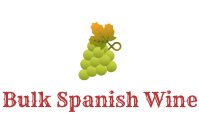In the competitive global wine market, Spain has consolidated its position as one of the main producers and exporters of bulk wine.
The growing demand for this format has allowed the country to stand out not only for its production volume, but also for the quality and versatility of its wines. Below, we explore the reasons that have led Spain to lead this segment and the opportunities offered by the bulk wine market
What is bulk wine?
Bulk wine refers to wine that is transported and sold in large volumes without being bottled beforehand. This format is highly valued by importers and bottlers, as it reduces logistics and production costs, offering greater flexibility when creating own brands or satisfying the demand for wines in specific markets.
Spain’s position in the global market
Spain is the country with the largest surface area of vineyards in the world, and its long winemaking tradition has allowed the country to offer a wide variety of wines. In recent years, bulk wine production has gained importance, representing a significant part of the country’s wine exports. According to data from the Spanish Wine Market Observatory (OeMv), Spain exports more than 10 million hectolitres of bulk wine annually, giving it a competitive advantage in this segment.
Key factors of Spain’s leadership in bulk wine
Vineyard extension and climatic variety. Spain’s climatic and geographical diversity allows the production of a wide range of bulk wines, ranging from powerful reds to fresh and fruity whites. Regions such as La Mancha, Castilla y León and Extremadura stand out for their great production capacity.
Value for money. Spanish bulk wine offers excellent value for money, making it an attractive option for international buyers looking for high quality wine at competitive prices. This balance has been key to positioning Spain against other competitors such as France and Italy.
Innovation in export processes. Technology and advances in logistics have made it possible to improve the transport of bulk wine, ensuring that it arrives in perfect condition at its destination. Spanish exporting companies have adopted innovative storage and transport methods, such as the use of isothermal containers, which guarantee the preservation of the wine’s properties over long distances.
Sustainability and reduced carbon footprint. Bulk wine is a more sustainable option than bottled wine, as it reduces the use of glass, labels and packaging, which reduces the carbon footprint associated with its transportation. Spain has been able to take advantage of this to attract importers interested in more environmentally friendly products.
Main markets for Spanish bulk wine
The main destinations for Spanish bulk wine include countries such as Germany, France, Italy and the United Kingdom. In addition, emerging markets in Latin America and Asia have begun to show interest in Spanish bulk wines, which expands growth opportunities for exporters.
Germany. It is one of the largest consumers of Spanish bulk wine, using it for bottling and selling under local brands.
France and Italy. Although they are wine producers, both countries import bulk wine from Spain to complement their supply in certain market segments.
United Kingdom. Demand for bulk wine in the UK has increased due to the growing interest in good quality wines at affordable prices, and Spain is a key supplier.
Challenges and opportunities for the future
Despite Spain’s success in exporting bulk wine, the sector faces some challenges. Competition with other major producers, such as Australia and Argentina, forces Spanish companies to maintain high quality standards and to continue to innovate in their production and export processes. In addition, climate change and fluctuating global market prices are factors that could impact the future of the sector.
Nevertheless, the opportunities remain promising. The growing interest in sustainable products and the demand from emerging markets offer a positive outlook for Spanish bulk wine. Exporting companies have the opportunity to further expand their global presence and further consolidate Spain’s position as a world leader in this segment.
Spain has been able to take advantage of its vast wine resources and its capacity for innovation to become the world’s leading exporter of bulk wine. With a varied offer, competitive prices and a focus on sustainability, Spanish bulk wine will continue to be an attractive option for importers and global consumers. The combination of tradition, quality and logistical efficiency ensures that Spain’s leadership in this market will remain strong in the coming years.

